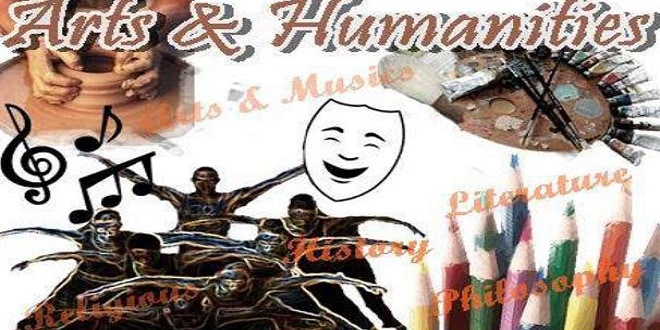Art Courses In Nigerian Universities Approved By JAMB

Making an informed decision is one of the crucial steps to success in life. Being an Art student is not enough but the knowledge of the courses under it will help your decision making. It will enable you to know the courses that strike your interest and what is required to actualize it.
It is for this reason that this article was written to help those who want to study any of the art courses in any of the Nigerian Universities. Each course has different requirements, so you will review the JAMB brochure to get information about their requirements. Also, for those who had D7/E8 in literature, the brochure will help you to know the schools that can consider you.
The importance of studying this course includes:
- The arts connect people across time and cultures. Because the arts are universal and culturally specific, they are a powerful means of increasing international and intercultural. They help improve international relations.
- Through studying the arts, students better understand their own culture and prepare for global citizenship.
- They help interpret and defend the law and constitution of a country, ensuring that law and order prevail in the society.
Check out the list below:
- Archaeology
- African and Asian Studies
- Anthropology
- Arabic Studies
- Arabic Language and Literature
- Arabic and IS
- Arts (Combined)
- Christian Religious Knowledge/Studies
- Christian Studies
- Classical Studies
- Communication Arts
- Communication and Language Arts
- Comparative Religious Studies
- Counselling and Psychology
- Creative Arts
- Drama/Dramatic Arts/Performing Arts/Theatres Arts
- International Studies and Diplomacy
- Efik-Ibibio
- English Language
- English Language and Literature
- English Studies
- English and Literary Studies
- English and International Studies
- Economics
- Fine Art/Fine and Applied Arts
- Foreign Language and Literature
- French
- French and International Relations
- French and German/Russian
- Fulfulde
- Geography and Environmental Studies
- German
- Hausa
- History
- History and Archaeology
- History/International Studies
- History and Diplomacy
- History and Diplomatic Studies
- History and Strategic Studies
- History and Political Studies
- Igbo
- Igbo/Linguistics
- International Studies and Diplomacy
- International and Comparative Politics
- IS
- Kanuri
- Kiswahili
- Languages
- Languages Arts
- Languages Arts and Yoruba
- Language and Linguistics
- Language and Literature
- Linguistics
- Linguistics/Yoruba
- Linguistics/Edo
- Linguistics/Urhobo
- Literature in English
- Mass Communication
- Modern European Languages
- Modern Language and Translation
- Music
- Philosophy
- Philosophy and Religious Studies
- Political Science and Conflict Resolution
- Psychology and Human Development
- Portuguese
- Portuguese/English
- Religion and Philosophy
- Religion and Science
- Religious Studies
- Religious Studies/Theology
- Russian with French/German
- Sociology
- Theology
- Yoruba
- Yoruba and Communication
General Admission Requirements
Philosophy
O’level: Five (5) SSC credit passes to include English language and four (4) other relevant subjects.
JAMB subject combination: Any three (3) subjects.
English Language
Five (5) SSC credit passes must include Literature in English, English Language, and three other Arts or Social Science subjects.
JAMB subject combination: Literature in English, one other Arts subject, and another Arts or Social Science subject.
Religious Studies
O’level: Five (5) SSC credit passes to include English Language and CRS/IS.
UTME subject: CRS/IS and any other two (2) subjects
Art (Combined honour)
Five (5) SSC credit passes to include English Language and the subjects to be combined.
Arabic Studies
Five (5) SSC credit passes in English Language, Arabic and three (3) other relevant subjects.
JAMB subject combination: Arabic and two (2) subjects from Arts and/or Social Sciences
Archaeology
Five (5) SSC credit passes to include English Language and one (1) of the following subjects, Religious Studies, Geography, Economics and History.
JAMB subject combination: Any two (2) subjects from Arts, Social Sciences and one (1) of History, Religious Studies, Government and Geography.
Christian Religious Studies
Five (5) SSC credit passes in English Language, CRS and three (3) other relevant subjects.
UTME subject: Two (2) Arts subjects including CRS and any other subject.
Theatre Art
Five (5) SSC credit passes to include English Language and Arts subjects.
UTME subject: Literature in English and two (2) other relevant subjects.
French
Five (5) SSC credit passes including French and English Language plus one (1) other Arts subject.
UTME subject: French and any other two (2) subjects from Arts
History
Five (5) SSC credit passes to include History and English Language.
UTME subject: History and any other two subjects from Arts and Social Sciences.
History and International studies
Five (5) SSC credit passes to include English Language, Geography, Government/History.
UTME subject: History/Government and any other two (2) subjects from Arts and Social Sciences.
Linguistics/ Linguistics and Communication Studies
Five (5) SSC credit passes including English Language.
UTME subject: Any Language and two (2) other subjects.
Mass Communication
Five (5) SSC credit passes to include English Language.
UTME subject: Any three (3) Arts and Social Science subjects.
Music
Five (5) SSC credit passes including Music and English Language.
UTME subject: Music, one (1) other Arts subject plus any other subject.
All the above courses are the best art courses to study in Nigeria. However, it is good to study the employability rate of a course before you go for it, especially in Nigeria. The employability rate makes art the best art course to study.
